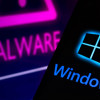Supercomputing Windows skips Itanium 2
Microsoft will support only x86 processors with 64-bit extensions when it releases a special version of Windows Server for high-performance computing next year, leaving support for Intel's Itanium 2 chip to a later, unspecified date.
The high-performance space is currently dominated by Unix and Linux operating systems running on 64-bit systems, including Itanium 2. Microsoft wants to break into the market, but feels the Itanium 2 is too expensive and too powerful for the small clusters that its target customers will set up in research and corporate environments.
"In our first edition, we don't plan to support Itanium 2," said Greg Rankich, senior product manager at Microsoft. "When you look at our target market, the departmental clusters, Itanium 2 is a bit outside the reach in terms of budget and needed computing power."
Microsoft plans to support Itanium 2 in a second release of Windows Server 2003 Compute Cluster Edition (previously called HPC edition), but has not yet set a release date.
While Microsoft has opted not to support Itanium for now, Hewlett-Packard is pushing the company to do so soon.
"We're encouraging Microsoft to support Itanium as quickly as possible," said HP's Ed Turkel. "We are certainly seeing customer interest, particularly in organisations where the application set is driven mostly by Windows desktops or in smaller organisations with a Windows infrastructure where introducing another operating system may cause a problem."
HP currently sells Itanium 2 in its Integrity servers, as well as systems based on Intel's Xeon and AMD's Opteron 64-bit processors.









































































